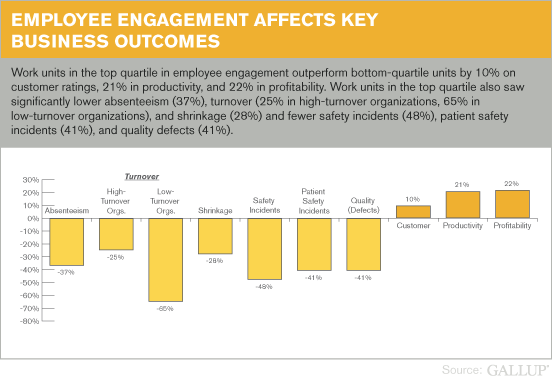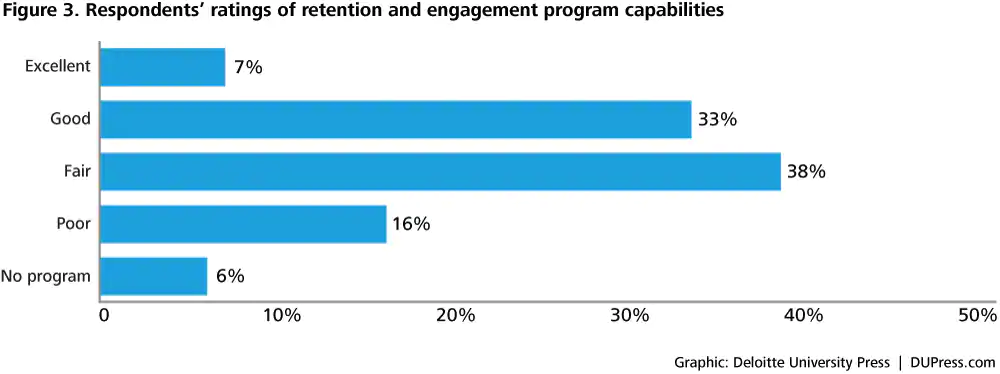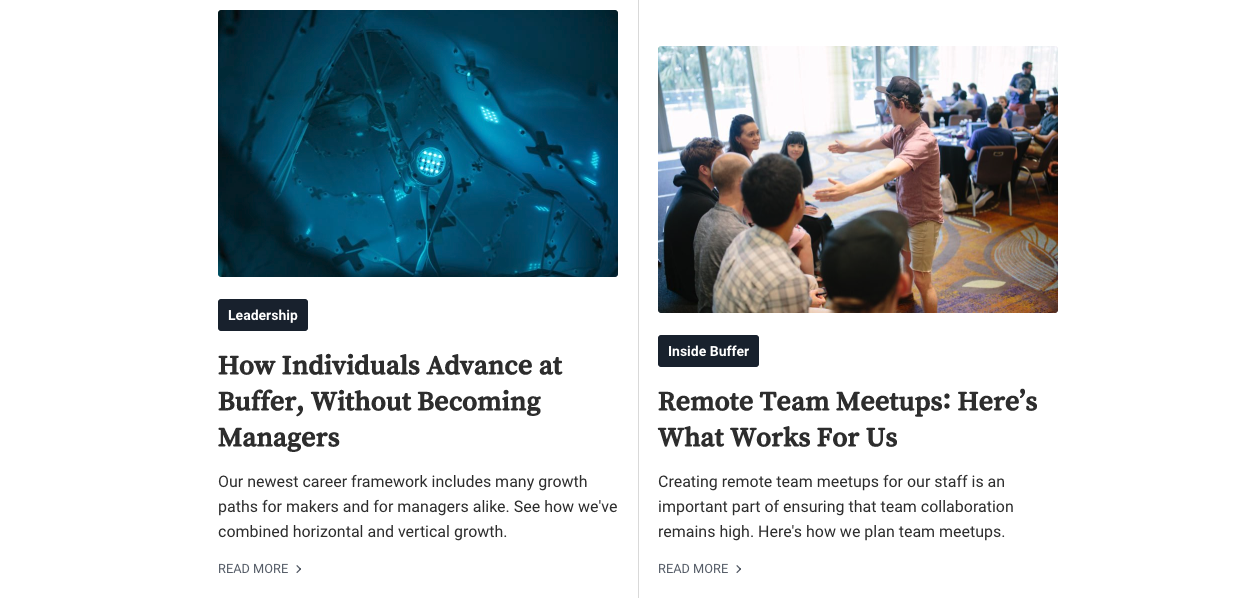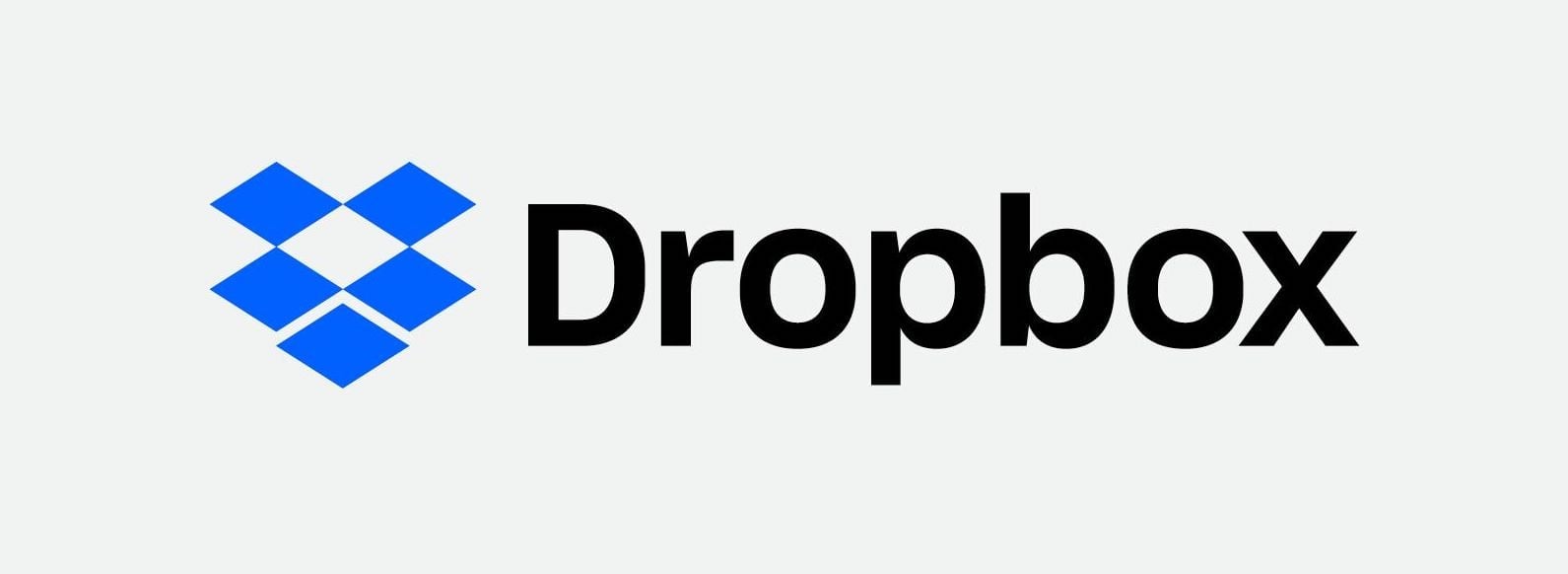
It is by no means easy for any organization to establish a strong identity.
It takes excellent leadership from the get-go to clearly define values, goals, and objectives that stakeholders can stand by and employees feel motivated to forward with consistent high-quality performance.
This is proving increasingly challenging for businesses as there is no clear solution, no clear method to getting it right.
But it’s time serious measures were taken to do something about it.
According to research by Deloitte, culture and engagement is the most important issue companies face around the world, with 87% of organizations citing culture and engagement as one of their top challenges, and 50% call the problem “very important.”
The importance of company culture has become increasingly important over the last couple of decades, as younger generations demand a work environment that feels nurturing, encourages collaboration, and offers challenges that keep them engaged and present opportunities to make a notable impact in some way.
“Corporate Culture is one of the most talked about topics by business leaders today, and for good reason. The business impact of a weak or misaligned culture has become more pronounced over the last 10 years as company after company, from banking, insurance, airlines, auto manufacturers and energy utilities have experienced billions of dollars in fines and share price declines as a result of issues ultimately stemming from a misaligned or even toxic corporate culture.” – John Childress, The Evolution of Corporate Culture & Culture 4.0
So, which companies out there are really setting the bar when it comes to creating and maintaining this productive atmosphere?
And how are they doing it?
In this post, we’re going to be looking at five organizations that have drawn a lot of attention not simply because they offer a great product or service, but because they have managed to establish a company culture that is so strong, it’s a significant competitive advantage that helps the business scale.
As well as describing the five company culture examples, I’ll provide some key takeaways for each one that hopefully will help get you thinking about what steps you can take to improve your company culture.
First, let’s try to better understand why company culture is so important.
Why is company culture so important?
It’s not hard to recognize why a company’s culture is so important and the extent of influence it can have on overall business performance, because culture is something we are all familiar with outside of work, and plays an essential role in our lives.
Culture is the unspoken atmosphere that sets the scene for how we live, both independently and when engaging with others. We tend to not think about it, but cannot imagine living without it.

And so, in a business context, it is also essential and plays a pivotal role in any company’s success.
Here are a few key, broad reasons why company culture is so important.
Increases engagement and productivity
Employee engagement is another hot topic in the business community, and is closely related to company culture seeing as the latter is the framework from which the former can be effectively evaluated and improved.
They are, in one word, inseparable.
Simply put, employees are far more likely to enjoy and willingly engage themselves in cross-functional work if they feel like their needs and values are consistent with those in the workplace.
In today’s world, it takes more than an interesting job description to attract and engage employees. Job seekers are looking for a team with which they can contribute to exciting goals and accomplish things both individually and as a cohesive unit with other individuals that they respect and enjoy working with.
“Ask any top performer what keeps them at their company and you’re bound to hear this answer: the people. It’s because a workplace culture focused on people has profound appeal. It helps improve engagement, deliver a unique employee experience, and makes your people feel more connected.” – Corey Moseley, 7 Reasons why Organizational Culture is Important
The benefits of high employee engagement are incredibly significant, and are highlighted time and time again from various research studies.
For example, research by Gallup found that highly engaged employees are 21% more productive, while 73% of disengaged employees are actively looking for a new job, compared with just 37% of engaged employees.

In addition, a study of 64 organizations by IBM company, Kenexa, found that those with highly engaged employees achieve twice the annual net income of organizations whose employees are disengaged.
Even so, leaders are not yet doing enough to truly appreciate the importance of engaging their employees and taking action to do so.
Research by Dale Carnegie revealed that 90% of leaders think an engagement strategy has an impact on business success, but barely 25% of them actually have an established strategy.
The key takeaway here is to never underestimate the importance of creating a positive, vibrant workplace environment as it will directly impact employee engagement and in turn, overall business productivity.
It may seem like this is all HR talk, but it isn’t. Company culture and employee engagement are massive drivers of financial performance as well as the company’s image, reputation, and employee satisfaction.
Attracts and retains quality employees
You’ll find that most of the benefits of strong company culture are inter-related because culture encompasses almost every aspect of a business.
Retaining quality, high-performing employees and minimizing turnover is, of course, closely linked to my previous point concerning employee engagement.
Keep your employees engaged, and they are less likely to leave.
Pretty straight forward.
A study conducted by Columbia University suggests that the likelihood of job turnover at an organization with strong company culture is a mere 13.9%, while the probability of job turnover at a company with a poor company culture sits at a concerning 48.4%.
“Your culture is the formula, the DNA that provides guidelines, boundaries and expectations for your team and your customers, and is the primary platform for inspiring and motivating your people. It is the most powerful resource you have to attract, recruit, hire and retain the highest level of talent to your business.” – Peter Ashworth, Why Company Culture is So Important to Business Success
Inability to retain employees is becoming a serious problem that cannot afford to be overlooked any longer.
A Deloitte study found that a substantial proportion of respondents (22%) reported that their company has either a poor program to measure and improve engagement, or no program at all. The most common response (38%) reported their retention and engagement program as “Fair”.

This brings the message home: Organizations need to do more to engage employees and retain high performers, while first establishing a company culture that attracts suitable employees.
Put retention aside for a moment, and go back to the beginning of an employee life-cycle: attraction.
Strong, clear company culture will enable your organization to attract top talent.
Furthermore, not only are your applications more likely to have an impressive skill-set, but they are also more likely to be a great cultural fit, because they would have done their research and felt that this is the kind of place they want to work at and contribute to the company’s success.
This point about job seekers researching and being drawn to opportunities in which they identify with the company’s culture, brings me to my third point about why company culture is so important: demand from younger generations.
Meets the increasing demand for meaningful work

Younger generations demand more from their employers than the generations that came before them. Plain and simple.
The fast-paced, technology-driven world gives us instant access to information through our smartphones, while also pushing companies to be transparent and really show their inner workings.
This means that recent graduates and other up and coming job seekers have a tremendous amount of insight into an organization’s culture before even seeing the office or submitting an application.
Not only that, but the amount of information and opportunity presented on the internet means that job seekers now have an incredible amount of choice, and it doesn’t take much to dismiss one opportunity and move on to the next.
Research has become an incredibly powerful tool, and if companies don’t have an impressive image, reputation, and culture, they are much less likely to attract the kind of people they would like to.
“Given the harsh spotlight of this new transparency, an organization’s culture can become a key competitive advantage—or its Achilles’ heel. Culture and engagement are now business issues, not just topics for HR to debate. And there’s no place for organizations to hide.” – David Brown et al., Culture and Engagement: The Naked Organization
What all three points I’ve mentioned in this section really come down to, is attracting and retaining quality, high-performing employees.
This is critical to success, as the truth of the matter is, humans are unrivaled as the most complex and important component of any business.
5 company culture examples to learn from
Let’s look at five organizations that recognize this and have managed to establish company culture as a key competitive advantage.
After a description of each culture, I’ll include some actionable key takeaways that you may find applicable to company culture improvement initiatives in your organization.
1. Spotify

I love Spotify. There is no doubt in my mind that is has enhanced my life and is constantly enabling me to discover great music (their conversion rate agrees with me on that).
Regardless, put my love for the product aside, focus on the business and its people, and it soon becomes clear that they know what they’re doing, in terms of workplace culture as well as building awesome software.
To make sure they are doing everything they can to build and support healthy company culture, Spotify set up a team in 2013 within HR that they call the Social team. This team is focused entirely on organizing social events and employee initiatives to bring team members closer together.
The company’s leadership view the social team as one of the employee value propositions that sets them apart from bigger scale companies with more traditional and corporate perks, and define its mission as “To help Spotifiers love life at Spotify and the Spotify spirit”.
Together, Spotify employees attend interesting team building events, both on-site and outside, to keep employees motivated and excited to help the company grow.
Beyond events, they offer employees numerous tools to improve their personal mental and physical well-being, including gym perks and mindfulness sessions.
“Bringing people together gives them a stronger sense of belonging, so we create many different opportunities for people to socialize and come together in a different environment. They bond over hobbies, chat about their days, or even compare differences, highlighting how diverse the Spotify family is. We like to think of the social team as the foundation of bridge building – we help facilitate relationships that will lead to excellent collaboration.” – Social at Spotify
All in all, by dedicating a small team to fostering strong company culture, Spotify have managed to build a family spirit in which employees feel dedicated to the company’s mission, enjoy working together, and have the opportunity to engage in personal development initiatives far beyond their job description.
Key takeaways:
- Having a small team within HR dedicated to organizing social events and other team building initiatives is an effective way to ensure there is always something going on that is intended purely to bring team members closer together.
- Celebrating company accomplishments together and organizing fun activities creates a sense of pride and belonging for all employees
- Focus on the individual as much as the team. Offer opportunities for personal development such as gym memberships and sessions on topics completely unrelated to work, like mindfulness and healthy eating.
2. Buffer

In case you haven’t heard of them, Buffer is a social media platform that allows you to easily manage your company’s various social networks.
Buffer has only been around since 2010, and from the beginning has been very clear about who they are, their core values, and what they are setting out to accomplish.
The company is so open, in fact, that they have a dedicated blog, Open Buffer, in which they post articles to give readers a deep insight into the workplace culture and initiatives to continuously improve it.

Their transparency seemingly has no limits, as they even disclose details regarding employee salaries and analyze their gender pay gap to see what steps they can take to work towards greater gender diversity and balance.
These are Buffer’s 6 core values:
- Default to transparency
- Cultivate positivity
- Show gratitude
- Practice reflection
- Improve consistently
- Act beyond yourself
You can see that every single one of these values implies a team effort in some capacity. Buffer has left no room for doubt or interpretation when it comes to the importance of collaboration in their organization.
“Our latest journey into finding better, more productive ways to work together revolves around bringing our “whole selves” to work—our passions and side projects, our family, our pets, our obligations and joys, all of it!” – Courtney Seiter, The 10 Buffer Values and How We Act on Them Every Day
Beyond setting their own values, they have even released a 34-minute class on creating, practicing, and sharing company values. You can sign up to take that class here.
Key takeaways:
- Do not be fearful of transparency. By exposing your organization to the public, including vulnerabilities and shortcomings, you are giving job seekers as well as current employees confidence in knowing exactly what you are up to, and will ultimately gain their respect for being so open. If you have nothing to hide, don’t hide anything.
- Work on defining a clear set of values that truly represents the spirit of your company. They should be positive, actionable, and clarify the importance of teamwork when it comes to accomplishing business goals.
- Consider having a dedicated webpage like Open Buffer for providing insight into company operations. Topics can include recent team building events, personal anecdotes from employees, and real-life examples of how you act on your core values.
3. Patagonia

Based in Ventura, California, Patagonia is a company that lives and breathes the outdoors.
Genuine care and passion for the environment are a must-have for every employee, and even just this shared love for nature is something that brings the team closer together and fosters strong company culture.
There’s a lot more to it, however.
Being such a large company with over 2500 employees, maintaining a family spirit amongst the entire team is no easy task.
One thing the company does to keep the spirits up is closely monitor which activities employees are engaging in, particularly those in corporate offices, to make sure they aren’t burning out doing the same work in the same environment for long periods of time.
Perhaps the most impressive aspect of Patagonia’s company culture is their commitment to maintaining the integrity and purpose of the organization, as it was set out to be when it was founded by climber Yvon Chouinard in 1973.
Chouinard wrote a memoir titled Let My People Go Surfing that the company’s leaders still stand by to this day. Employees working at the company’s headquarters in Ventura often spend an hour or so each day trying to catch the perfect wave, or go on a 30-minute bike ride on their lunch break.
The integration of outdoor activities during workdays is a core value for Patagonia, and has proven to have a tremendous impact on employee morale and productivity.
Staying true to the company’s history and core values is so important that not even an economic crisis will convince the leadership team to re-prioritize.
“The decisions that we make, even in the bad times, 2008 was not a great time for Patagonia and a lot of other companies, but we didn’t cut health care, we didn’t cut on-site childcare, we didn’t cut training and development. That’s the test of true culture, when the decisions you make are consistent whether business is really really good or really really challenging. And I think that’s why our employees stick with us. We have just ridiculously low rates of turnover.” – Dean Carter, Head of Shared Services for Finance, HR & Legal
Since 2008, the company has doubled in size and tripled in profits, earning $600 million in 2013 and continuing to expand into new global markets.
This goes to show that encouraging your employees to have a healthy work-life balance by offering them the time to pursue outdoor activities, both independently and as a team, does not mean sacrificing productivity and overall business growth. In fact, it can have just the opposite effect.
Key takeaways:
- Offering your employees ways to engage in fun activities unrelated to their day-to-day work is more likely to improve productivity than stifle it.
- Even in the tough times, be wary of sacrificing your core values for the sake of financial preservation.
- Take your organization’s history seriously. Maintain the integrity of the business regardless of what challenges you face.
4. BambooHR

The founders of Bamboo HR, Ben Peterson and Ryan Sanders, set out to create a great place to work. They recognized and understood that by creating a great place to work, they would attract great people who would produce great work.
Their mission statement is simply “Setting People Free to Do Great Work Since 2008”.
It’s really that simple, and over the course of 11 years, they’ve proved that prioritizing the workplace environment and employee engagement is the key to success.
Their core values are:
- Make it count
- Enjoy quality of life
- Grow from good to great
- Be open
- Assume the best
- Do the right thing
- Lead from where you are
Each and every one these seven values emits a sense of positivity and optimism that lies at the heart of the organization.
One example of how they keep things fresh by engaging their employees in activities outside of work is to select a challenge each month which everyone participates in.
“Our executives and managers choose a value to focus on each month. They select an activity or challenge for employees across the entire company to participate in as a way to help us practice what we preach. For example, during the month that we focused on Be Open (one of the seven values), we were all asked to seek out feedback from a few coworkers to improve our communication skills.” – Tori Fica, HR Insights Specialist at BambooHR
Key takeaways:
- Live by your company’s core values by regularly (every week/month/quarter) focusing on one particular value and pairing it with some sort of exercise, whether it be an activity, challenge, or large-scale event that involves the whole team.
- Always remember that employees are the heart of your business, if you prioritize business performance over their well-being you will stifle growth, both in the short and long-term.
- When determining your organization’s core values, make them positive, optimistic and empowering.
5. Dropbox

For many years, Dropbox has been recognized for having an excellent workplace environment.
Considering that the company’s mission is to “unleash the world’s creative energy by designing a more enlightened way of working”, this should hardly be a surprise.
Like Patagonia, Dropbox is a large organization with approximately 2,000 employees, making company culture even more important and difficult to manage consistently.
One of the foundational ways they manage to keep employees happy and motivated is organizing fun events for the team to collectively engage in.
One example, and apparently a fan favorite, is Hack Week, which allows the whole team to casually mess around with code or if they would prefer, pursue an unrelated professional interest. This has no intention of being related to the Dropbox platform, but sometimes can generate inspired solutions that make the product or work environment even better.
This is really a win-win situation, as employees can challenge themselves with personal projects and be recognized by managers for realizing interesting ideas and solutions.
“We’re encouraged to solve problems on our own, which is really rewarding because I get a sense of ownership of my work.” – Genevieve, Product Manager at Dropbox
The company’s core values are the following:
- Be worthy of trust
- Sweat the details
- Aim higher
- We not I
- “Cupcake image”
Yes, the fifth value really is “Cupcake image”.
This is something incredibly unique about Dropbox’s 5 core values – one of them is simply an image…of a happy cupcake.

The image was thought of by Dropbox CEO, Drew Houston, who, in an interview with Business Insider, credited it the company’s incredible success.
He said the picture is meant to represent his commitment to keeping a fun, easy-going company culture which he believes has been instrumental to the company’s rapid growth.
Pretty unique, and if a picture really does say 1000 words, then a clever way to condense a complex value into a fun and pleasing image.
Key takeaways:
- Organize fun and creative company-wide events like Hack Week to encourage individual creativity and provide an opportunity to be recognized for producing something innovative.
- Maintain and sense of looseness and humor to avoid employees getting overly stressed and taking things too seriously. Ultimately, work should be enjoyable and the highest quality work always comes from those who really enjoy what they are doing.
- Have a blend of individual and team-focused core values to empower each individual employee while making it clear that effective collaboration is critical to success.
How we do it at Process Street

The team here at Process Street is fully remote, which obviously brings about a ton of challenges and limitations when it comes to company culture.
Just the fact that a business can exist and thrive when employees are dotted all around the world is amazing, but still, without some sense of unity and shared vision, it’s difficult to realize significant growth.
So how do we address this challenge?
Well, one of the most important things we do is hold weekly “donut” calls in which a Slack channel automatically pairs up employees for a 30-minute chat. The only rule of these calls is that we don’t talk about anything work related (unless we really want to)! It’s intended to be a relaxed, informal time to get to know each better and talk about what we get up to outside of work.

We also have a company all-hands meeting every month, where each team provides a brief update on how everything is going. We also use this time to discuss ideas, recognize individual and team achievements, as well as discussing the near-term roadmap so we are all aware of what’s going on and how our individual work relates to the company’s development.
Aside from online collaboration, we organize meet-ups in locations where a group of employees is located. For example, a number of our software developers reside in Vancouver, so now and then they’ll get together for a beer and hang out.
Overall, the most important way we stay in the loop and communicate with each other effectively is through asynchronous communication. What this basically means is that each employee is incredibly mindful of what they say and how they say it, in order to ensure that they are making themselves perfectly clear and if they have an ask, leaving no room for confusion or misunderstanding.
This is nothing short of essential for a remote team to be productive.
Aside from its practical purpose, Asynchronous communication is an important aspect of our company culture because it enables us to work together effectively and more importantly, trust each other. Through trust, we are brought closer together and feel supported even in challenging circumstances.
I hope you can take away some valuable insights from this article. What kind of company culture initiatives do you find work best for your business? Let me know in the comments below!







Alex Gallia
Alex is a content writer at Process Street who enjoys traveling, reading, meditating, and is almost always listening to jazz or techno. You can find him on LinkedIn here